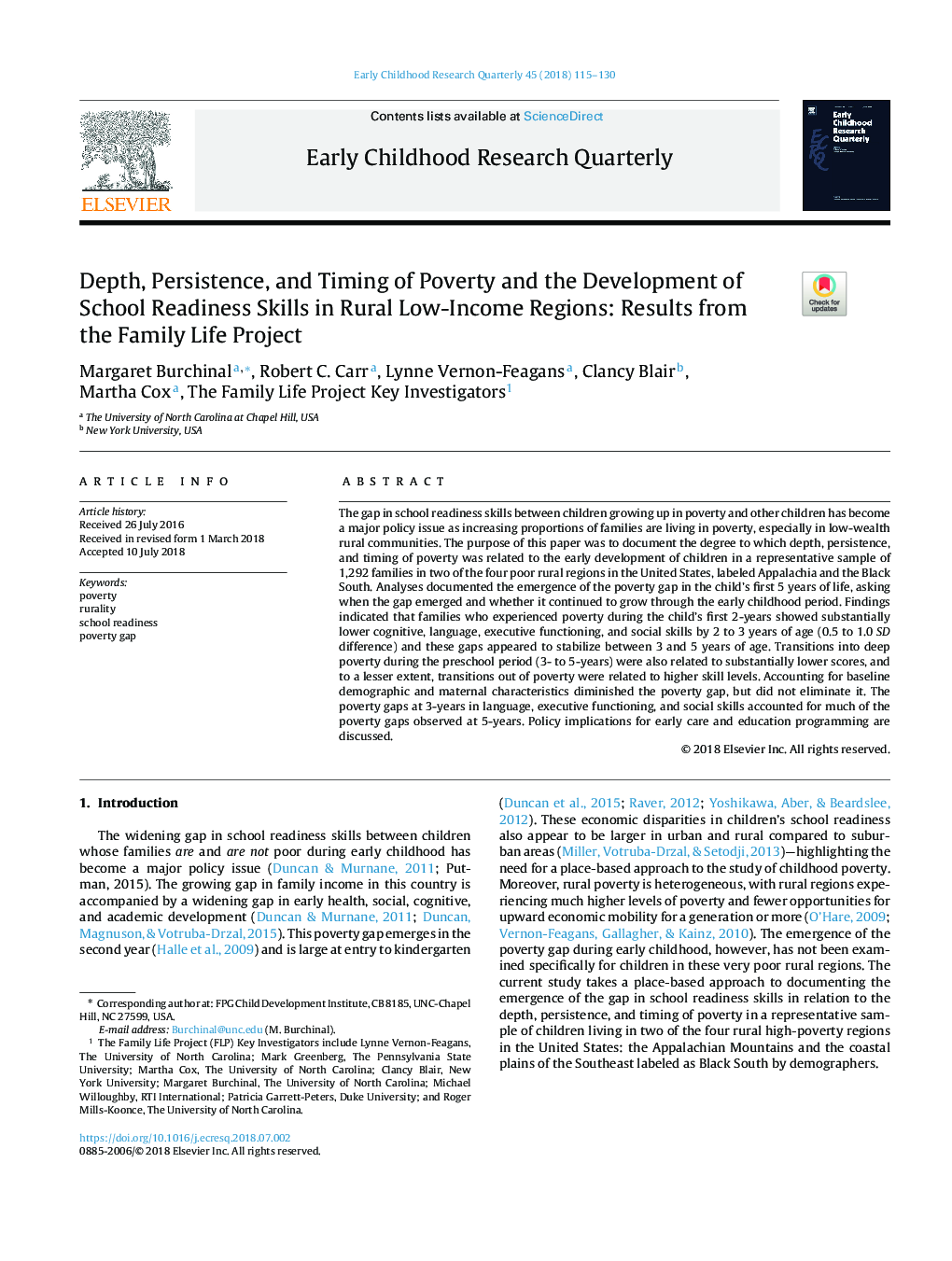| Article ID | Journal | Published Year | Pages | File Type |
|---|---|---|---|---|
| 6840489 | Early Childhood Research Quarterly | 2018 | 16 Pages |
Abstract
The gap in school readiness skills between children growing up in poverty and other children has become a major policy issue as increasing proportions of families are living in poverty, especially in low-wealth rural communities. The purpose of this paper was to document the degree to which depth, persistence, and timing of poverty was related to the early development of children in a representative sample of 1,292 families in two of the four poor rural regions in the United States, labeled Appalachia and the Black South. Analyses documented the emergence of the poverty gap in the child's first 5 years of life, asking when the gap emerged and whether it continued to grow through the early childhood period. Findings indicated that families who experienced poverty during the child's first 2-years showed substantially lower cognitive, language, executive functioning, and social skills by 2 to 3 years of age (0.5 to 1.0 SD difference) and these gaps appeared to stabilize between 3 and 5 years of age. Transitions into deep poverty during the preschool period (3- to 5-years) were also related to substantially lower scores, and to a lesser extent, transitions out of poverty were related to higher skill levels. Accounting for baseline demographic and maternal characteristics diminished the poverty gap, but did not eliminate it. The poverty gaps at 3-years in language, executive functioning, and social skills accounted for much of the poverty gaps observed at 5-years. Policy implications for early care and education programming are discussed.
Keywords
Related Topics
Social Sciences and Humanities
Psychology
Applied Psychology
Authors
Margaret Burchinal, Robert C. Carr, Lynne Vernon-Feagans, Clancy Blair, Martha Cox, The Family Life Project Key Investigators The Family Life Project Key Investigators,
